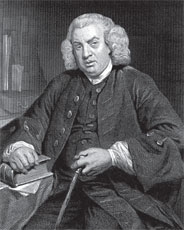Discover yourself via writing
 I must write it out.
Writing is thinking. It is more than living, for it is being conscious
of living. I must write it out.
Writing is thinking. It is more than living, for it is being conscious
of living.
-
Anne Morrow Lindbergh
If you are given a blank piece of paper, how many of you can fill it
with meaningful words, sentences and ideas? For the uninitiated, this is
the ultimate challenge.
Almost all budding writers must have gazed at the blank page without
knowing what to write. When you have to write a class assignment, you
are confronted by a blank page. At the examination hall, you waste your
precious time staring at a blank page. No wonder that we feel excited or
enthusiastic on such occasions. If you are unable to write a single
word, the problem lies not in your stars, but in your inability to get
started.
Professional writers have come up with various solutions to this
problem. Why can’t most of us write? Is it due to the paucity of ideas?
Or is it because we do not know how to organise our ideas? Most
professional writers recommend that beginners should get into the
notebook habit. This does not mean that their notebooks will be
published in the future. Far from it. Once you start maintaining a
notebook or journal, you begin to write regularly.
Influence
Joseph Reynolds, who later became a writing guru, found his journal a
many-faceted influence on his writing in later life. His journal soon
became a storehouse of ideas. In his journal, he recorded stories he had
heard, descriptions of strange people he had met, quotations he had
culled out from books and magazines. By writing them in the journal, he
remembered them for the rest of his life.
 |
|
Samuel Johnson:
I write, therefore I am. |
Almost all writers fall into Reynold’s category. By maintaining a
journal, they become great collectors of ideas.
In addition, they begin to see life clearly. This is something most
ordinary people miss out in life. They do not know who they are or what
they are capable of doing. Samuel Johnson wrote, “I write, therefore I
am.” He slightly changed the celebrated philosopher Descartes’ dictum:
“I think, therefore I am.”
Writing, like any other skill, improves with constant practice. One
who maintains a journal practises the difficult art of writing. What is
remarkable is that you can write anything in your journal because it is
something private, just like a diary. Well, on some days, you may not be
able to write anything in the journal. On such days, you can read the
old entries. If necessary, you can rewrite them in a better way. This
will also be a good exercise for your memory.
Grammar
When you are saddled with writing an essay or an assignment, you need
to worry about grammar, punctuation and spelling. However, in journal
writing, grammar, punctuation and spelling take a back seat. You write
in a relaxed manner without being bothered about the niceties of the
language. Give free rein to your ideas and feelings. If you do not do
so, they will fly away like birds!
Some people are good at prose, others will do better in verse.
However, the journal can accommodate prose and verse in equal measure
because no one will look over your shoulder to check what you are
writing. The journal will help you to attempt different types of writing
because you are not bound by time constraints. When you put pen to
paper, you become the master of yourself. Never think of quitting
because when you quit writing in your journal, you lose interest in
life.
Feelings
Most people maintain a diary to record the day’s events and
engagements. But a journal is different from a diary. To borrow a
philosophical term, when you maintain a journal, you become ontological.
Like most philosophers, you can unload, dump and let go of your feelings
in the journal. It is the ideal book to record petty jealousies, hard
feelings against a colleague, flashes of bright thoughts or an
infatuation.
Keeping a journal is real fun. Without your knowledge, it becomes a
safety valve. You begin to discover more about yourself. You start
paying attention to your thoughts and missed opportunities.
A day will come for you to sift through your journal entries and
identify certain ideas that can be developed in to a short story or even
a novel. The secret is that those who maintain journals will one day
become eminent writers! |


